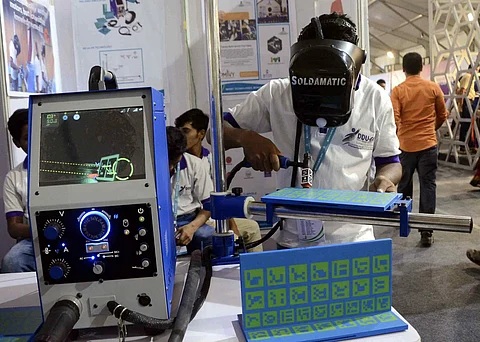

Education plays a pivotal role in shaping the future of individuals and driving a nation's progress. In India, the relationship between education and employability has gained increasing importance as the job market becomes more competitive and dynamic. The challenge lies not just in providing education but also in ensuring that it equips students with the skills and knowledge required to succeed in the ever-evolving professional landscape.
One of the critical issues in the Indian education system has been the gap between academic curriculum and industry demands. While traditional subjects remain essential, the demands of the modern job market call for a blend of technical, soft, and digital skills. Many employers express concerns about the readiness of graduates to meet workplace expectations. This gap has led to a growing emphasis on incorporating practical and industry-relevant training into the education system.
To bridge this gap, there has been a surge in vocational education and skill development programmes. These initiatives aim to provide students with hands-on training in specific trades and enhance their employability by making them industry-ready. Government schemes like the Skill India Mission have been launched to train millions of young people in various skills, ranging from information technology to healthcare.
The higher education sector has also witnessed changes to enhance employability. Universities and colleges are increasingly partnering with industries to offer courses aligned with market needs. Internship programmes, industrial visits and interactions with professionals have become integral parts of many academic programmes. These experiences not only expose students to real-world scenarios but also help them develop a professional network.
Moreover, the rise of online learning platforms has revolutionised education by providing accessible and affordable ways to acquire new skills. These platforms offer a wide range of courses, allowing individuals to upskill or reskill at their own pace. This flexibility is particularly beneficial for those already in the workforce who seek to enhance their skill set without disrupting their careers.
However, challenges persist. The divide between urban and rural education continues to hinder equal access to quality education and employability opportunities. Additionally, the rapidly changing nature of industries, driven by technological advancements, calls for a constant updating of educational content to remain relevant.
In conclusion, the link between education and employability in India is undergoing transformation. While challenges like curriculum-industry alignment and access disparities exist, initiatives to bridge the gap are on the rise. Integrating practical skills, vocational training, and collaboration between academia and industry are steps in the right direction. As India's economy diversifies and globalises, a holistic approach to education that nurtures both knowledge and skills will be the key to fostering a workforce equipped to thrive in the modern professional landscape.
